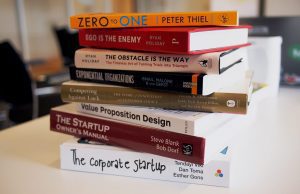While the mainstream media continues to spin horror stories about how AI is going to make everyone unemployed and propose that the only possible future involves a society of leisure supported by universal basic income, the people who actually study these things have a much more positive outlook: one backed by an understanding of history, data and credible models.
A recent World Economic Forum report highlights that machines’ share of task hours will rise from 29% to 42% in the next four years, making everyone’s job more interesting and allowing us to focus on value-adding, human-centred activities. The report contains various estimates, one of which shows that 75 million jobs may be displaced by a shift in the division of labour between humans and machines, while 133 million new roles may emerge that are more adapted to the new division of labour between humans, machines and algorithms. That’s a net 58 million jobs created (77% increase). No leisure society predicted here. Sorry.
The challenge we face is not one of unemployment but one of radical change in the nature of work. Those 133 million new jobs will look very different and require every one of us to master new skills. That’s where your organisation needs to focus its efforts. Another report, this time from Accenture, explores the challenge ahead: businesses must embrace a new role as continuous learning institutions along 3 lines: experiential learning techniques, broaden individuals’ blend of skills (I have written about this long ago, what I called Π-shaped people) and ensure inclusive access to tomorrow’s skilling solutions.
20 years ago, companies faced a similar -albeit less disruptive- challenge. With the advent of the Web, everyone was suddenly a publisher. We all had to scramble to figure out how to set up websites, what these websites were for, and how best to resource them, tend to them, measure their effectiveness and continue to develop them. As the field matured, some elements became commoditised (CMS, Web analytics, Job Descriptions and Team Structures, etc) while the advent of eCommerce created a whole new category of interactive publishing where people could, for the first time, discover our product, get it delivered, use it, service it and become active promoters (in effect a form of unpaid sales force) or detractors with the power to sink our business. This wasn’t publishing any longer. In fact, traditional publishers, who were poised to take the best advantage of the new medium, fared particularly badly in this new publishing environment.
As we stand at the start of a new, potentially much larger tech-driven disruption event, it makes sense to ignore the doomsayers. They tend to be short-sighted, ignorant, biased, prejudiced or dishonest. Remember that, in the absence of data, people who think their opinions are superior to others are most prone to overestimating their relevant knowledge and ignoring chances to learn more. Instead, invest in your own learning and fill your company with data, experimentation and knowledge. Embrace how the business evolves with the introduction of automation and AI, and empower everyone in your organisation to develop themselves, learning constantly. The future is going to be very different. There’s no reason your organisation shouldn’t be the one shaping it.



Leave a Reply